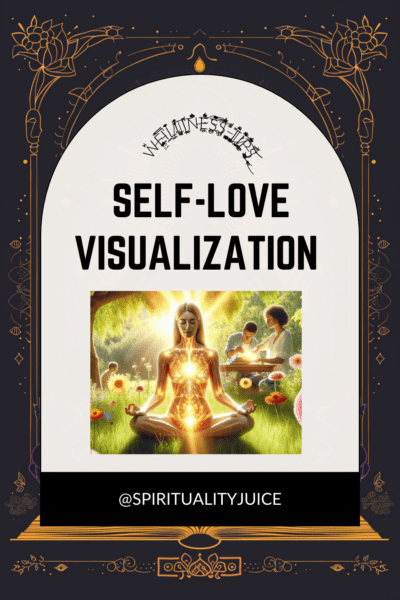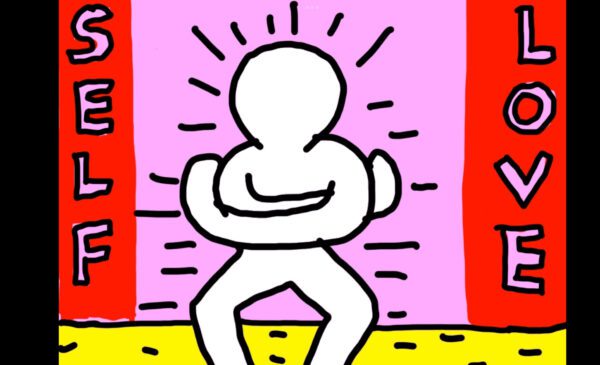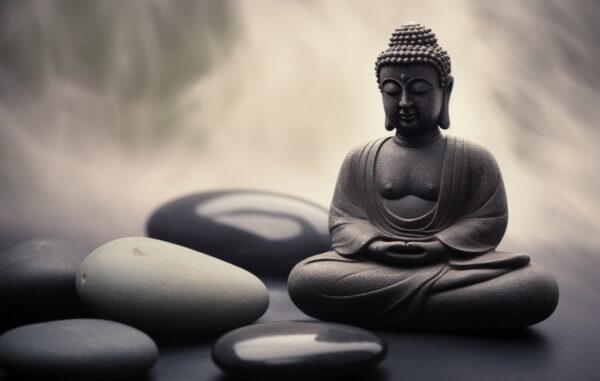Kano Jigoro, was Judo masters numero uno. The dude was not big by any means, yet could skillfully topple any mothaf**ka 2x his size. You see he had studied under all the great masters of martial arts, and was even coined as the father of Judo. However, when he died he asked to be buried in the white belt of a student and not the black belt of a Grand Master.
Why did he do that? Why did this Judo master want to be remembered as a “student”?
This example best embodies the essence of the Zen Beginner mind more than anything. That is:
The Master is a student!
You are an apprentice in this life, learning from the great master. The soul is a project of its own doing, the teacher is the greater reality. Here is what you have to know.
Direct Experience of Reality
Zen Mind Beginners Mind is like Childlike beginnings. You take no point of reference by which to mull over the world, therefore you make meaning of it as your own.
-Embrace the state of learning.
-Has no preconceptions or expectations of the teachings.
-Completely submissive to the master.
The master has spent years mulling over his craft. Thick neuropathways have been formed in his brain. Yes he is precise, yes his work is astounding. However the newness has lost its vibrancy. The work seems monotonous, routine almost.
In one of Osho’s books I remember him talking about “Zen” being the amalgam of “Buddhism” & “Taoism”. The best of the Chinese Tradition of Tao mixed with the burgeoning Indian lifestyle guru of the south.
You have the strict step-by-step rigor of Buddhas teachings (which are almost scientific) with the boomer Taoist mentality. Zen is walking balance on the slackrope and I think that’s the point of Zen Mind Beginners mind too. That balance between walking the thin line of structured work and carefree novelty. You’re the Boomer.
Tame your Energy: Embrace Change
Buddhism considers impermanence (Annica or Anitya) to be one of its central tenets. “Everything Changes and Nothing Lasts Forever,”. That is correct, everything is always changing and decomposing, from our thoughts and sentiments to our emotions to the cells in our body to the plants all around us.
develop openness & calm
To become more attuned to this flux of time and space you have to be open to it. Since now you’re a child, you’ve had this idea of “success” & “doing” forced into your head. We’ve all been sort of brainwashed by this mass cross-continental game of Monopoly. We’re meant to believe that everything is for sale and we can’t waste a minute or we’ll be left behind.
For once think of yourself as not the doer but the done. This force of life is like a massive river flowing constantly. Give into it, become like a stone that is being smoothed by the river.
What does the Zen Mind Beginners mind even do for me at this point?
It basically means you should approach the topic of reality at hand with the same enthusiasm, openness, and lack of preconceived notions that a beginner would have. This is what is meant by the phrase “beginner’s mind.”
The core teachings and practices of zen are:
- Zen Meditation
- Mindfullness
- Direct Experience of Reality.
Zen was really influenced by Dogen, one of Zen Buddhism’s most influential and original figures in the religion’s long history. I think his teachings are just critical for Spiritual awakening.
Zen mind just another example of the mystery traditions that Zen masters employ to redirect attention from within. This is done in order to make one look beyond the phrases themselves. To divest signifiers of the things that they signify. This causes you to ponder what surface means.
Check out the Ten Bulls of Zen here
Your Spiritual Development through Zen Beginners Mind
Shoshin is a remedy for the arrogance and narrow-mindedness that keeps us from the realization of the self. Toxic egoism comes with believing oneself to be an expert in a certain field. That also has to do with understanding and communion with the self.
To the development of your beginner’s mind “Soshin” is the state of mind when one has the beginning to “know thyself.” Zen mind, beginner mind is important for knowing the self through unknowing. This is because in the ignorance of beginners’ minds, nothing can be misrepresented.
What gets us into trouble is not what we don’t know it’s what we know for sure that just ain’t so meaning?
-Mark Twain
A propensity to assume what really we consider is factual while, in reality, it is only opinion, which means that it is not always accurate.
Becoming Like a Child
In Thus Spoke Zarathustra there is just the most lovely triad for this development into the Nietzschean “Ubermensch”. That is: the representation of The Camel, the Lion and the Child.

The Camel: Bearing the Weight of Conformity
Imagine yourself dear reader as a camel, trudging through the vast desert of life. The camel is that part of you that dutifully carries the heavy burdens of societal expectations and norms.
You find yourself oddly conforming obeying and taking on the weight of the world. You operate within the “shoulds” the “oughts” the I wish I woulda just…(enter cultural norm here). And there yah go. Boom.
This is ok by the way, it’s totally normal. Don’t feel down on yourself.
Nietzsche suggests that we all start as camels, laden with the baggage of our upbringing, culture, and conditioning. We wear the masks society gives us, and we carry the burdens of tradition and conventionality. It’s like we’re on a never-ending trek through the desert, burdened by the weight of everyone else’s expectations.
The Lion: Roaring in the Face of Authority
But then, there comes a moment of awakening. You morph into the lion. The lion, unlike the camel, refuses to conform any longer. It’s the phase of rebellion and fierce independence. The lion, tired of carrying the world’s expectations on its back, says, “No more!” It roars defiantly at the world, tearing apart the shackles of conformity.
Nietzsche’s lion is the part of us that challenges authority. It does these things:
- questions norms
- seeks to define its own values
- creates it’s own meaning in ife.
It’s a liberating phase, as we reclaim our autonomy and assert our individuality. The lion isn’t content with following the herd; it’s determined to pave its own path.
The Child: Rediscovering the Joy of Wonder
But what comes after the rebellion? The child emerges. This is the phase of rediscovery, innocence, and creativity. The child within us is free from the heavy baggage of the camel and the rebelliousness of the lion. It sees the world with fresh, untainted eyes and approaches life with a sense of wonder and playfulness.
The Child and the Sun
The corresponding card in the Tarot to the re-discovery of life is the Sun. It is the tarot of awakening. To seeing and communing with the world as it truly is.
All those still asleep in Platos cave are only minding themselves with mere shadows of reality. Farces and fake ideas which are not in tune with the naturality of things.
The child who is riding the wild horse has tamed this beast. In turn can rejoice in claiming for him/herself the newness of this state of being. This is the higher state in the 10 bulls of Zen. The “riding the bull home.”
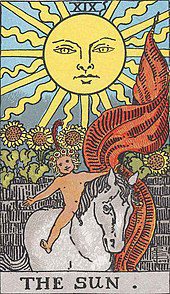
Now, let’s weave in the Zen concept of “Beginner’s Mind.” Beginner’s Mind, or Shoshin, is about approaching life as if you were a beginner, regardless of your expertise or experience. It’s about shedding preconceptions, biases, and expectations to see things with the same curiosity and openness as a child.
“Verily, verily, I say unto thee, Except a man be born again, he cannot see the kingdom of God.”
-John 3:3
Tying It All Together: The Zen of Camel, Lion, and Child
So, how does Nietzsche’s Camel, Lion, and Child metaphor connect with Zen’s Beginner’s Mind?
Well, the journey from camel to lion to child mirrors the process of emptying the mind, a fundamental aspect of Zen practice. Just as the camel sheds its conformity and the lion lets go of rebellion, Zen practitioners aim to release attachments to thoughts and ego, leaving the mind clear and open.
When we finally reach the child stage, we’ve achieved a state akin to Beginner’s Mind. We approach life without preconceived notions, biases, or judgments, just as a child experiences the world with awe and wonder. We become receptive to the richness of each moment, free from the constraints of our conditioned minds.
In essence, Nietzsche’s metaphor teaches us that we must go through the camel and lion phases to reach the child-like state of innocence and wonder. And when we embrace this child-like perspective, we align ourselves with the essence of Beginner’s Mind in Zen—a state of pure receptivity, open to the boundless possibilities of existence.
The Anti-Beginner: The Non-Player Character Mind
Gurdjieff used a weird performative instrument called a “device” to jolt people out of their states of everyday monotonous consciousness. We often find ourselves becoming the servents of the mind rather than its master.
Gurdjieff called this “Robo-Pathology”. You can kind of derive the meaning of this concept directly from he verbiage itself, right? I mean, ‘Robo’ is a robot, an automaton, a person whose life is routine and uninteresting who never tries anything new and who plods along anyway. He’s able to meet the challenges of the here and now, but he’s never been able to rise to the task of eternity.
The attitude of Zen Mind, Beginners Mind
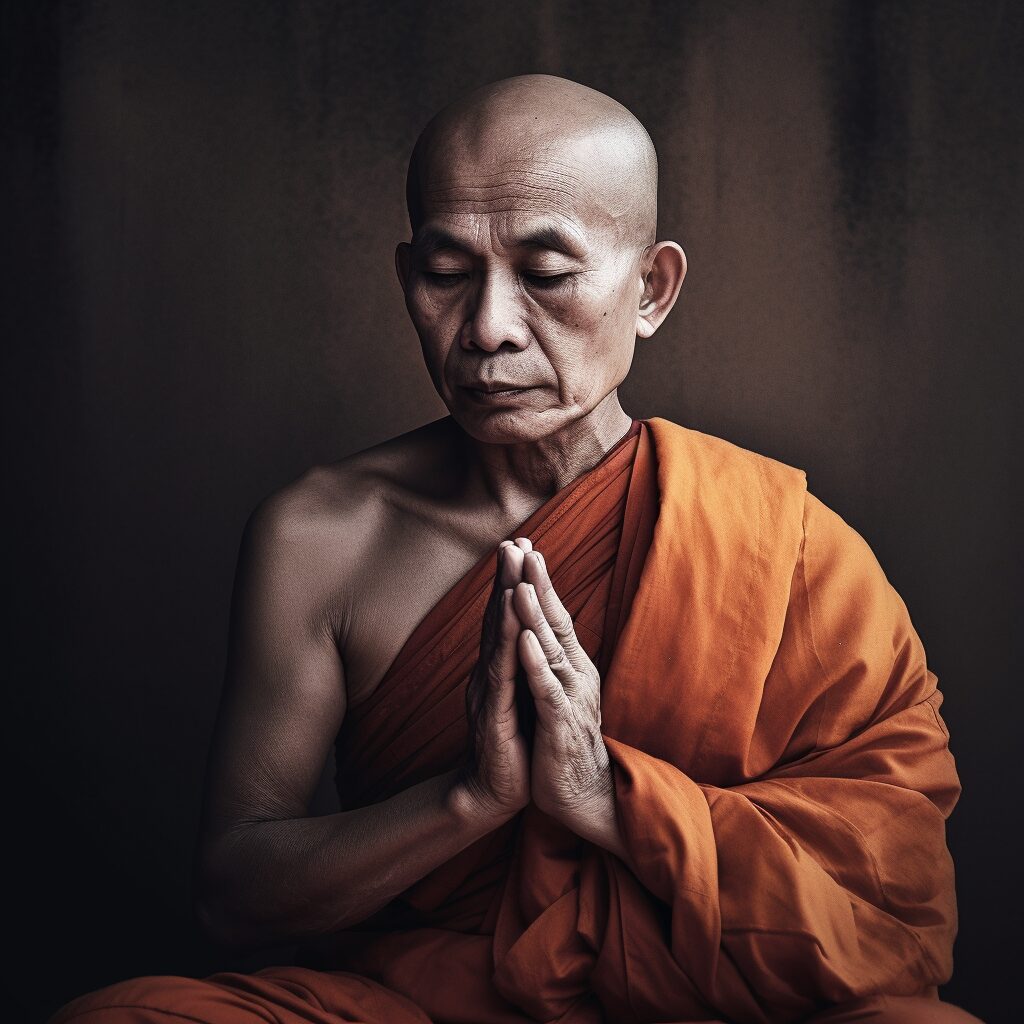
“dhyana prajna paramita,” = Zen Practice’
“To give is non-attachment,”
-Dogen
Generosity is detaching oneself from all externals. It is irrelevant what is provided. “Dana prajna paramita” might refer to anything from a single coin or leaf to a whole lecture or even just a single word of instruction.
Learning about Buddhism is not about learning about Buddhism; rather, it is about learning about ourselves. It is not feasible to study oneself without the guidance of an instructor.
The sitting position used in Zen meditation is a discipline in and of itself, but it also carries a more profound allegorical connotation.
LET GO!!!
Ultimate Goal of Zen? There is no Goal.
You might say that oh, hey…the goal of Zen is Satori.
Yes it is true that Satori is a profound and transformative experience that can bring a sense of clarity and enlightenment. However it is a moment of sudden realization or understanding that can completely shift your perspective and bring a new level of awareness to your life.
But is Satori the goal? No. The ultimate goal is to be goalless. Be a child, be a beginner. This notion that Christ has of being born again



